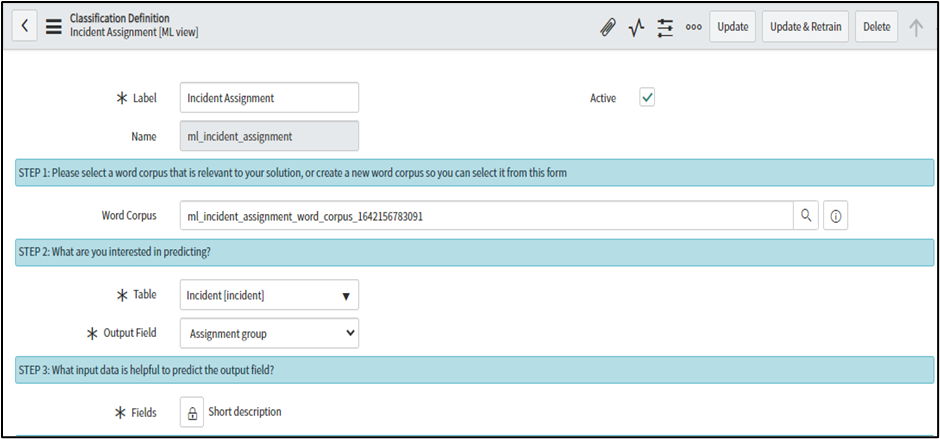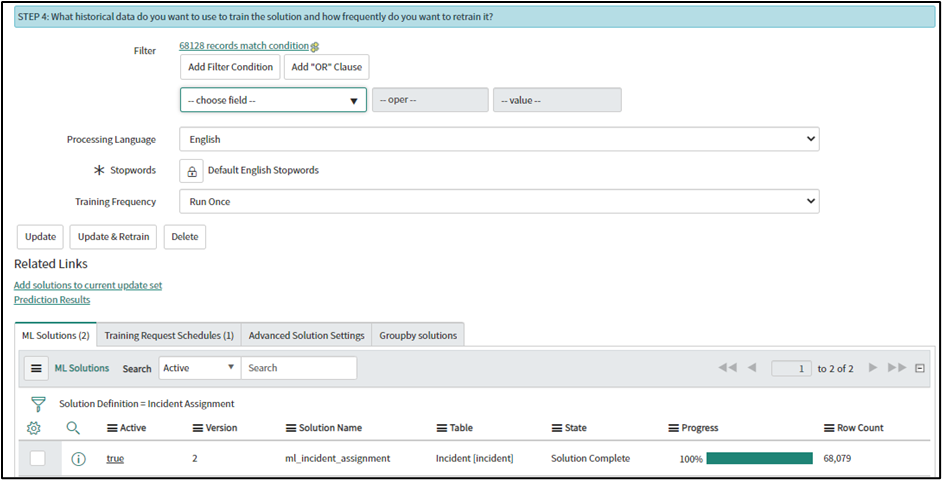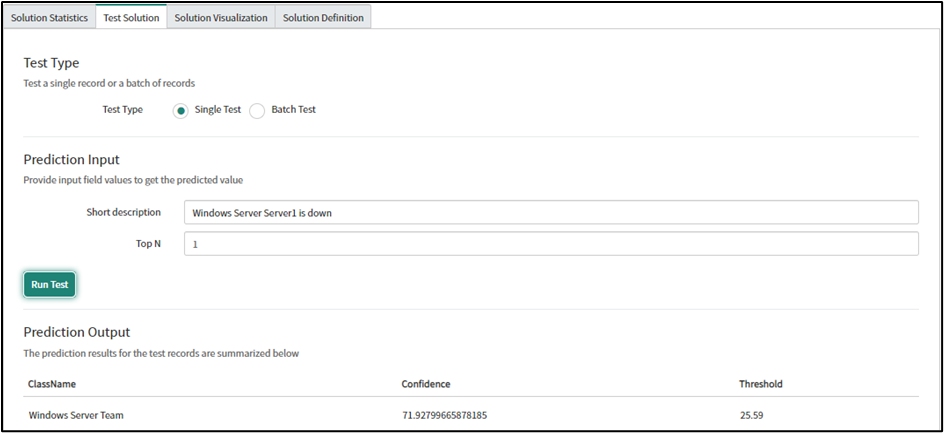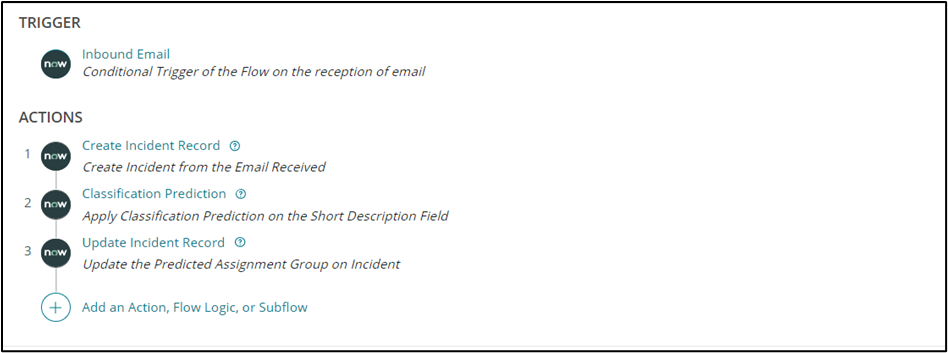Enhancing Service Delivery with ServiceNow Predictive Intelligence
In today’s modern world customers expect the best service delivery. If an organization is unable to provide it, customers are not hesitant to leave and pick another IT service provider. Therefore, many IT service providers are investing more in ways to improve service delivery.
Most service providers understand that Artificial Intelligence (AI) is the key to enhancing service delivery areas. Thus, they are investing heavily in the same. This also helps them enhance employee productivity and customer satisfaction.
ServiceNow has always been a leader in providing innovative solutions for IT operations. As part of this endeavor, it has added machine learning-based Predictive Intelligence to its ITSM platform. ServiceNow Predictive Intelligence empowers business functions such as HR, Service Delivery, Event Management, Customer Service Management, and ITSM with AI to enhance service delivery efficiencies.
ServiceNow Predictive Intelligence
ServiceNow Predictive Intelligence uses machine learning-based solutions that help delivery engineers resolve tickets faster, which leads to faster resolution time and increased customer satisfaction. It can also make predictions and recommend related records based on user input. This includes predicting record field values, recommending incident resolution steps, predicting an upcoming major incident, etc. Solutions are prepared by taking existing records as a training data set and training models on top of it.
Predictive Intelligence provides four frameworks for developing machine-learning solutions. A trained solution can be invoked by an API call or through the flow designer to make a prediction. The frameworks support languages including English, French, German, Japanese, Dutch, Spanish, Italian, and Brazilian Portuguese.
Foundation for using Predictive Intelligence
To start using Predictive Intelligence with the ServiceNow Platform, you must follow these steps:
- Activate the Predictive Intelligence (platform_ml) plugin and its dependent reporting (com.glide.platform_ml_pa) plugin.
- Confirm that the activation has successfully created a “sharedservice.worker” user.
- Maintain a minimum count of records for training to prepare or predict an accurate solution.
- ml_admin and ml_report_user roles are required to work with the Predictive Intelligence application.
Predictive Intelligence Frameworks
ServiceNow offers four frameworks that can be used to create machine-learning-based Predictive Intelligence solutions. They are:
1. Classification
It enables you to use machine-learning algorithms to set field values during record creation, such as setting the incident assignment group based on a relevant field.
2. Similarity
It identifies existing records that have similar values to the new record being created. For example, a subset of incident records can be trained to recommend a resolution for an incident. This can help the delivery team quickly provide the best resolution for an incoming incident.
3. Clustering
It is used to identify patterns by grouping similar records into clusters so you can address them collectively. For example, recent similar incidents can be grouped to predict a major incident.
4. Regression
It is used to predict numeric outputs based on a training set of historic data, such as the price of an item. For example, the Mean Time to Resolve (MTTR) could be predicted for an incident using regression.
A Possible Real-Time Implementation of Predictive Intelligence
Every day, the IT service desk team receives thousands of emails from customers to create incidents and service requests. The traditional way of dealing with them is as follows:
- Examine the email that was received then create and assign an incident in the ITSM tool.
- Identify the impacted application/service area and route the incident to the appropriate team.
Challenges with this approach include:
- Analyzing and reassigning the incident to the appropriate assignment group takes a significant amount of time.
- There is a high risk of incorrect assignment, which leads to re-assignments and a waste of time and effort.
So how can ServiceNow Predictive Intelligence help?
To overcome these challenges, the Flow Designer can be used with Predictive Intelligence to predict Assignment Group based on an incident short description. For this scenario, we will build and train a Classification Model solution. Let’s look at how to implement this:
- First, create a new classification definition by navigating to Predictive Intelligence -> Classification -> Solution Definitions and providing the required inputs as shown in the figure below (Figure 1). Once this is done, click onthe Update & Train/Retrain button to retrain the solution with the updated training data set.


Figure 1: Creation of a new classification definition
- Once the training is completed, we will test the solution for accuracy and precision by providing some sample data.

Figure 2: Testing the solution created for accuracy and precisio
- The next step is to create a flow in the Flow Designer with a conditional email-based trigger. Using the Create Record action, create an incident with a short description based on the email body. Next, invoke the Classification Prediction action inside the flow, which will take the short description of the incident created and predict the assignment group. The Predicted Assignment Group can then be set to the incident created using the Update Record action for incident remediation, which again can be automated by triggering different flows.

Figure 3: A sample flow to demonstrate the use of the ServiceNow Predictive Intelligence classification model
Tangible benefits with this approach include:
1. Increased business efficiency and customer satisfaction.
2. Reduced human error by avoiding erroneous assignments.
3. Delivery engineers can focus on other important tasks, which leads to increased employee efficiency.
Conclusion
ServiceNow Predictive Intelligence provides the capability to build and deploy machine learning-based solutions that enhance service delivery and reduce human dependency for mundane tasks and manual efforts. However, machine learning is often considered a threat by teams that are habituated to legacy or manual processes. Thus, if any organization wants to take advantage of the capabilities of ServiceNow Predictive Intelligence, they must educate their teams that machine learning and automation are keys to better productivity.
More from Amit Verma
Introduction The technology of generative AI (GenAI) is at the forefront of innovation, bringing…
Latest Blogs
Core banking platforms like Temenos Transact, FIS® Systematics, Fiserv DNA, Thought Machine,…
We are at a turning point for healthcare. The complexity of healthcare systems, strict regulations,…
Clinical trials evaluate the efficacy and safety of a new drug before it comes into the market.…
Introduction In the upstream oil and gas industry, drilling each well is a high-cost, high-risk…




